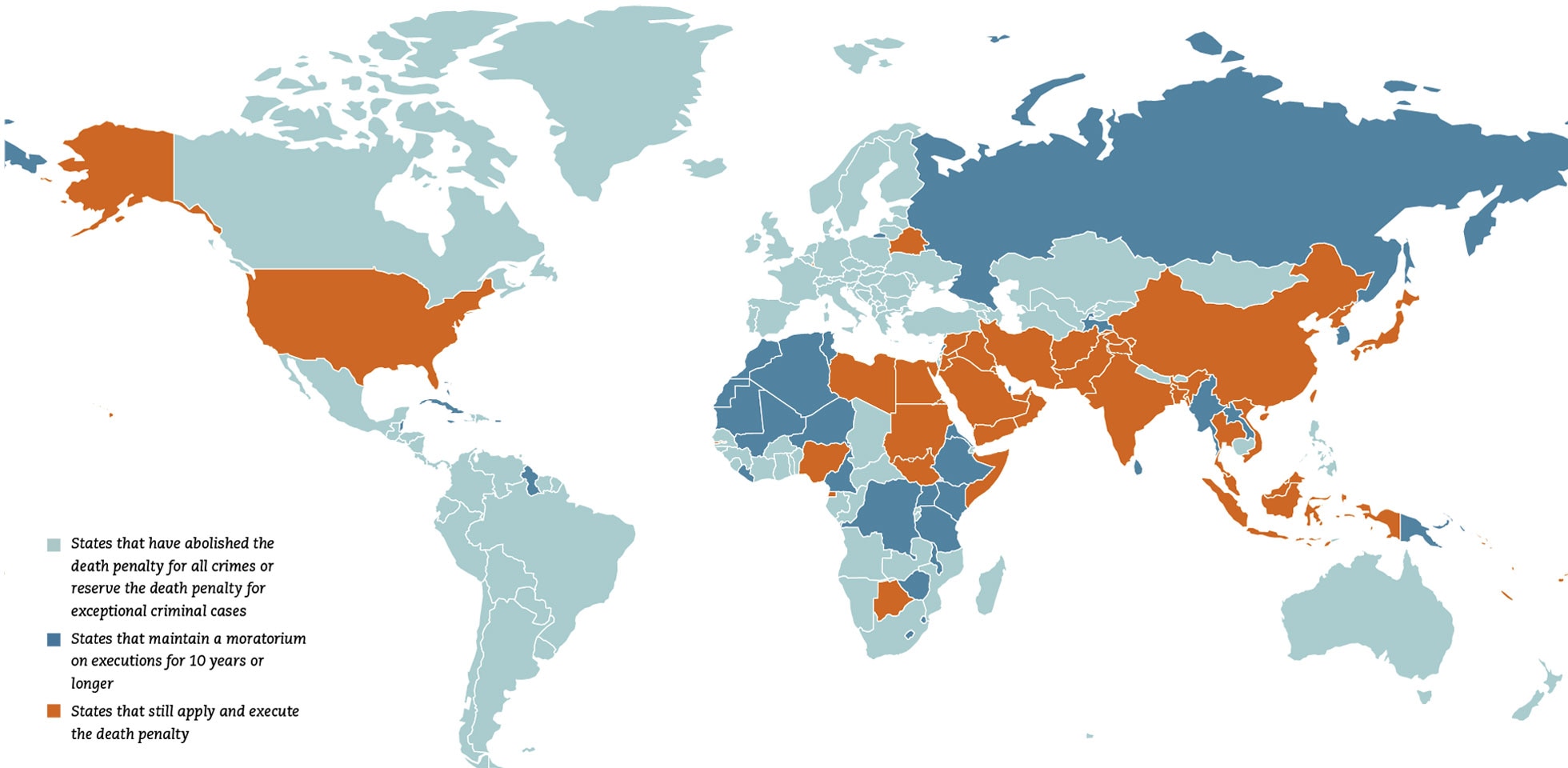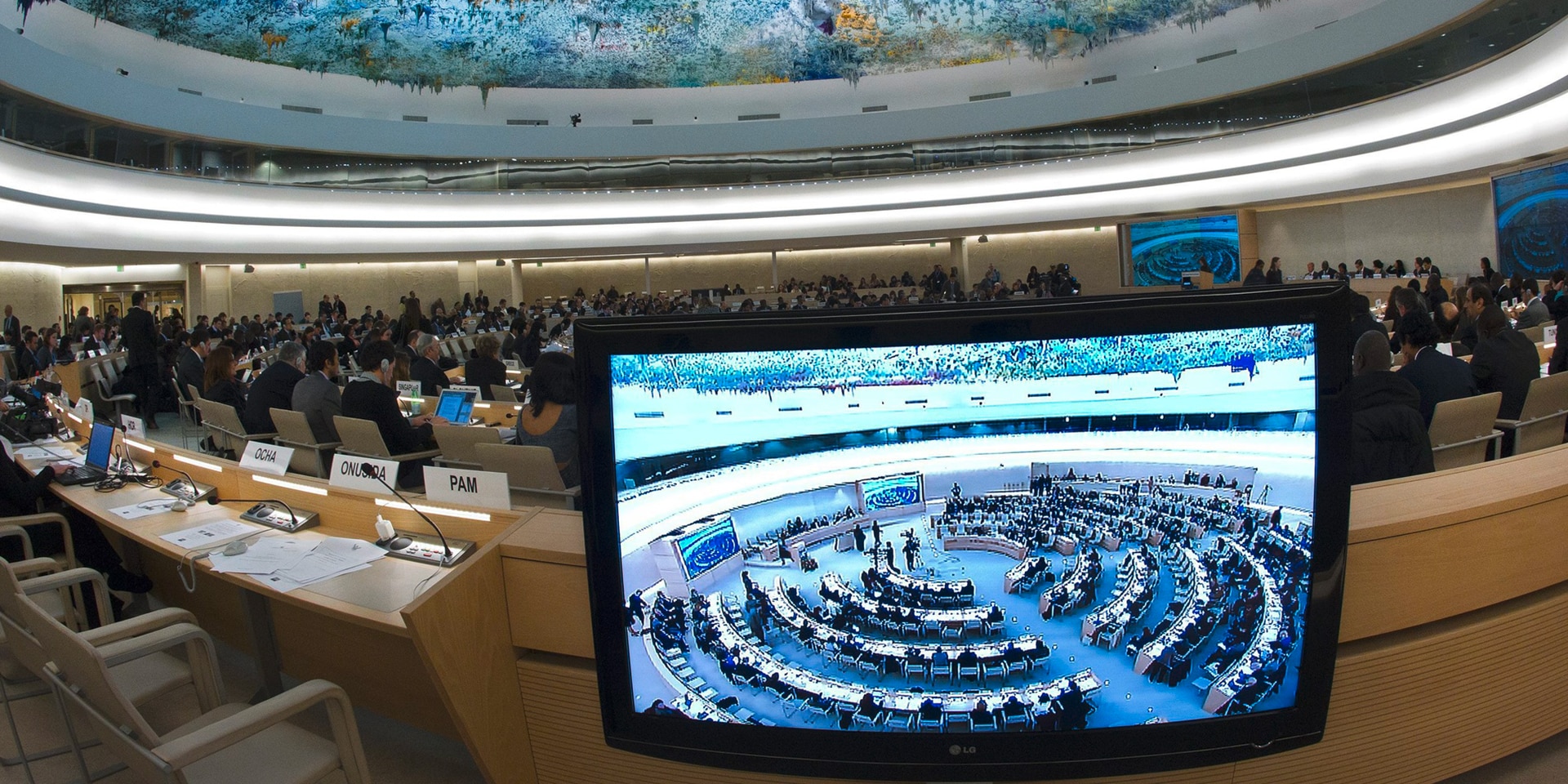Death penalty resolution "emblematic" of Switzerland's work
On 13 October, the UN Human Rights Council adopted a resolution on the death penalty. The resolution, introduced by Switzerland together with a group of other countries, aims to develop international standards to remedy the human rights violations associated with this practice. What is this resolution about, and how does it fit into Switzerland's work towards the universal abolition of the death penalty?

Switzerland is categorically opposed to the death penalty in all circumstances. © Envato
Switzerland scored a diplomatic success on 13 October when a resolution on the death penalty was adopted by a large majority at the UN Human Rights Council in Geneva. This positive result is part of a tradition. Since 2014, Switzerland has regularly introduced resolutions on the death penalty to the council, together with a group of states including Belgium, Benin, Costa Rica, France, Mexico, Moldova, and Mongolia. "As the resolution's penholder, Switzerland is the main author and can significantly shape the text and the negotiations," explains Ambassador Jürg Lauber, Switzerland's permanent representative to the UN in Geneva. "It is a major diplomatic undertaking for the Swiss permanent mission to achieve a relevant and balanced text on such a sensitive issue."
This year, the text focused on the right to seek pardon or commutation of sentence and the right of appeal. "This topic is closely linked to the fundamental and universal right to a fair trial," says Ambassador Simon Geissbühler, head of the Peace and Human Rights Division (PHRD), thematically responsible for the fight against the death penalty at the Federal Department of Foreign Affairs (FDFA). "Yet, unfortunately, we see these basic procedural rights regularly violated, which is especially serious when it comes to the death penalty." Each resolution asks the UN secretary-general to publish a report on the issue that the following resolution will focus on. Switzerland and the other states draft their resolution on the basis of the given report
Two main objectives
Switzerland is convinced that the death penalty is a human rights issue that concerns the international community as a whole. The country's first objective is therefore to make the death penalty a permanent item on the Human Rights Council's agenda. "The use of the death penalty leads to numerous human rights violations, which this initiative aims to highlight," says Ambassador Sandra Lendenmann, assistant director of the Directorate of International Law. "Calling attention to these violations is the first step towards effectively addressing, preventing and combating them."

The second objective relates to the substance of the resolution, which aims to progressively reduce the use of the death penalty worldwide. The resolution approved today includes important provisions from the UN secretary-general's report that strengthen the procedural rights of those facing the death penalty. For example, it stresses that the courts must take into account the personal circumstances of the offender and the nature of the crime. This leads to the conclusion that the mandatory death penalty, which leaves the courts no room for manoeuvre, is arbitrary. Consequently, and according to the resolution, states that make use of this penalty must cease doing so.
Crucial diplomatic work
However, Human Rights Council resolutions are not legally binding on states. So how can their implementation be ensured? This key question is coupled with the fact that while the number of countries (see box below) that have abolished the death penalty is rising steadily, there has been no significant change in the number of executions carried out over the last few years. This is a sign that it is difficult to restrict capital punishment in countries that still apply it.

Abolitionist states' diplomacy and civil society engagement are essential in this respect. Switzerland follows up with retentionist states, encouraging them to implement the provisions of the council's resolutions. The latest example of this is Malaysia. After a long parliamentary process, this country abolished the mandatory death penalty this summer and reduced the list of crimes punishable by death. Switzerland welcomed this positive step at the bilateral political consultations held in Bern on 26 September 2023. The resolution just adopted by the council was discussed to demonstrate that it was precisely in line with the path taken by Malaysia and that its provisions could offer concrete ways of consolidating the reform adopted during the summer.
Small, essential steps towards abolition
"This resolution is emblematic of Switzerland's overall efforts to combat the death penalty," says Mr Geissbühler. "While Switzerland is categorically opposed to the death penalty everywhere and under all circumstances, we are aware that taking a dogmatic stance towards retentionist states will not allow us to work effectively towards a world without the death penalty." A policy of small steps is therefore the most appropriate way of gradually encouraging these states to move towards abolition. On 13 October 2023, in Geneva, one further small step was taken.
Abolition around the globe: taking stock
The 21st World Day Against the Death Penalty was just observed, on 10 October. When this day was launched in 2003, only 80 states had abolished the death penalty for all crimes. There are now 113 states that have done so. This shows that while the trend towards abolition is gradual, it is tangible. Moreover, 149 states are now abolitionist by law or in practice, i.e. they respect at least a moratorium on executions. These positive figures must not, however, give rise to complacency, as many challenges remain and there have been setbacks in some states. In Myanmar, for example, executions resumed last year after a moratorium of over 30 years.



